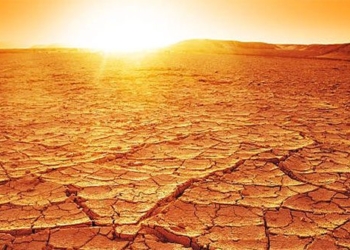Hanoi and provinces from the North to the Central region are experiencing the first heat wave of 2023. With average temperatures above 33 degrees Celsius, some provinces have even reached highs of 38-39 degrees Celsius, leading many to believe that summer has arrived.
However, according to forecasts from the National Center for Hydro-Meteorological Forecasting, this initial heat wave is expected to last only three days. By the weekend, a cold front will sweep in, dropping temperatures in Hanoi to between 19-23 degrees Celsius. In some northern provinces, temperatures may fall to 17-18 degrees Celsius, resulting in a slight chill.
The temperature fluctuation of over 10 degrees places us in a “climate pivot“, a phenomenon that scientists refer to as “yo-yo weather“. This can catch our bodies off guard, leaving us unprepared and increasing the risk of illness, colds, or even strokes.
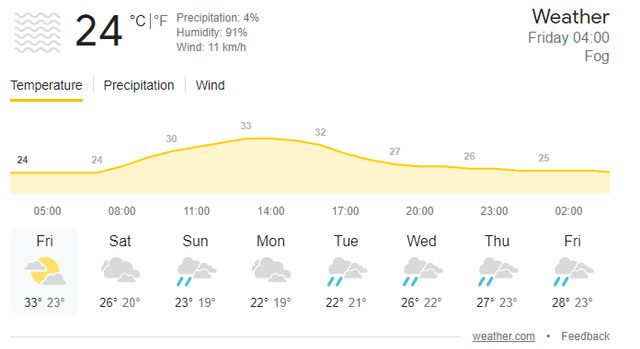
Temperature fluctuations exceeding 10 degrees Celsius in Hanoi this weekend, according to forecasts.
Dr. Aaron Bernstein from the TH Chan School of Public Health at Harvard University states: “The human body has the ability to adapt to temperature changes. However, this mechanism cannot kick in within just a few hours. It takes several days to up to two weeks for the body to fully adapt.“
So how can we protect our health during these “yo-yo weather” days? Who is most affected? Let’s explore:
What is “yo-yo weather” and how can it make you sick
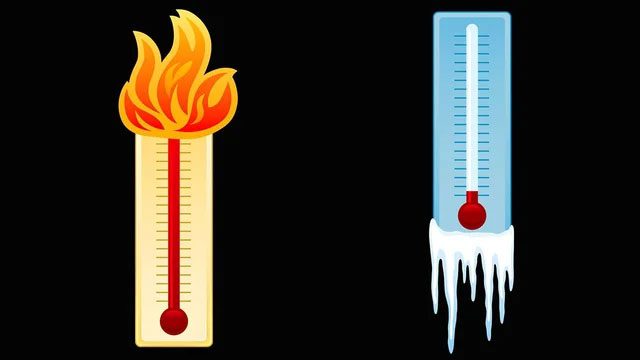
Weather changes can exacerbate health issues. (Photo: Nimalspace).
“Biometeorology“ is a scientific field dedicated to studying the impact of the atmosphere on the biosphere, including human health. This field has garnered significant attention in recent years, as climate change and global warming are causing more extreme weather phenomena to occur.
One such phenomenon is the sudden change in weather over short periods, such as a sudden chill during a heatwave or vice versa. Biometeorological experts note that such fluctuations can confuse plants and animals, disrupting the balance of fragile ecosystems.
Ultimately, weather changes can exacerbate human health issues. “I call it the ‘yo-yo weather’ phenomenon, with erratic ups and downs. It’s similar to yo-yo dieting; both are harmful to your health,” says Dr. John Whyte, Chief Medical Officer at WebMD.
According to him, “yo-yo weather” often triggers symptoms such as headaches, fever, unusual fatigue, runny nose, and watery eyes. Among these, a runny nose is the first and most common symptom.
This is because the nose is an opening in the body that contains many blood vessels sensitive to temperature. These blood vessels constrict when it’s cold and dilate when temperatures rise.
When the weather changes suddenly and erratically, the contraction and expansion of blood vessels in the nose can trigger a runny nose. It’s similar to stepping into an air-conditioned room after being outside in the sun, causing your nose to run.
Decreased atmospheric pressure during cold rain can lead to headaches
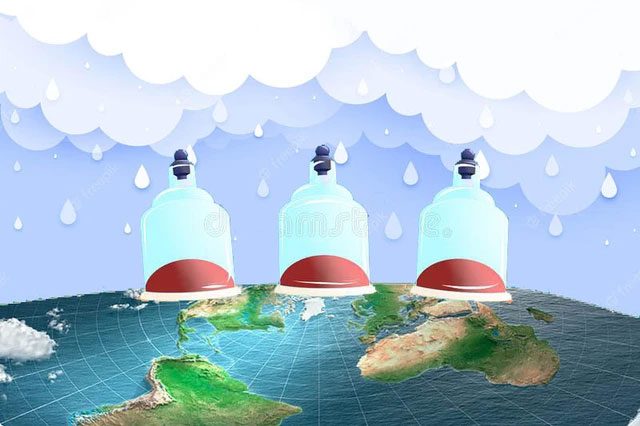
Weather changes can trigger migraines and other forms of headaches. (Photo: Genk).
Headaches are the second most common symptom when the weather changes suddenly, especially with the cold and rain expected this weekend in the North. This is due to decreasing temperatures and increasing humidity, which reduce atmospheric pressure.
Atmospheric pressure is a key factor determining the partial pressure of oxygen in the air we breathe. If atmospheric pressure decreases, the partial pressure of oxygen also decreases.
Our brains are highly sensitive to these changes in oxygen. Therefore, on days with lower atmospheric pressure, blood vessels in the brain will dilate to increase oxygen flow. For some individuals, this can trigger a headache, similar to the sensation experienced when flying or hiking from the base to the summit of a mountain.
In 2015, researchers analyzed sales data for a type of headache medication in Japan and found that sales peaked on days with lower atmospheric pressure, indicating impending bad weather.
That same year, a study published in The Journal of Headache and Pain by Taiwanese scientists demonstrated that weather changes could trigger migraines and various other types of headaches.
Be cautious of viruses and colds
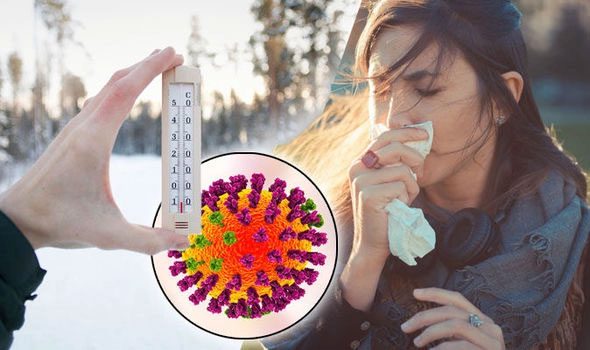
Temperature changes can increase your risk of viral infections or colds. (Photo: Express).
While the temperature changes themselves do not cause illness, they can increase your risk of viral infections or colds. According to the Centers for Disease Control and Prevention (CDC), the viruses that cause the common cold are most active during winter and spring.
A 2015 study published in the Proceedings of the National Academy of Sciences found that cooler temperatures promote the replication of cold viruses within host bodies.
Akiko Iwasaki, a co-author of the study and a professor of immunobiology at Yale University, stated: “The more cold air you breathe in, the easier it is for common cold viruses to multiply in your nose.”
Yo-yo weather exacerbates this effect, as sudden temperature changes can weaken our immune systems. Dr. Whyte notes that this is because our bodies are placed under stress, and stress is detrimental to immune function.
Gaurab Basu, director of the Center for Health Equity Education and Advocacy at the Cambridge Health Alliance, agrees: “Our bodies maintain a delicate balance, constantly working hard to maintain a specific body temperature. Therefore, when temperatures drop suddenly, the body must find ways to compensate for that extreme.”
Older adults with cardiovascular diseases and strokes

Older adults with cardiovascular diseases need to be cautious of yo-yo weather. (Photo: Men’s Health).
Dr. Whyte indicates that a particularly vulnerable group to “yo-yo weather” is older adults with cardiovascular diseases. A study published in The Lancet indicated that days of sudden weather changes lead to increased mortality from strokes.
Dr. Bernstein explains that thermal stress produces stress hormones that can put the heart and circulatory system under strain. “A sudden drop in temperature can lead to hypothermia and cause blood to become thicker, increasing the risk of blood clots that can lead to strokes, heart attacks, or blockages in blood vessels due to clots forming in the extremities,” he states.
Shingo Kajimura, a professor of cell and tissue biology at the University of California, San Francisco, adds: “When exposed to cold, the body tries to prevent heat loss by constricting blood vessels. This constriction can cause a spike in heart rate and blood pressure, leading to strokes or heart attacks.“
This is why Professor Kajimura receives numerous emergency calls in the middle of the night when “older adults get up to use the bathroom, and when they step onto the cold floor, it triggers blood vessel constriction,” he explains.
How to cope with “yo-yo weather”?
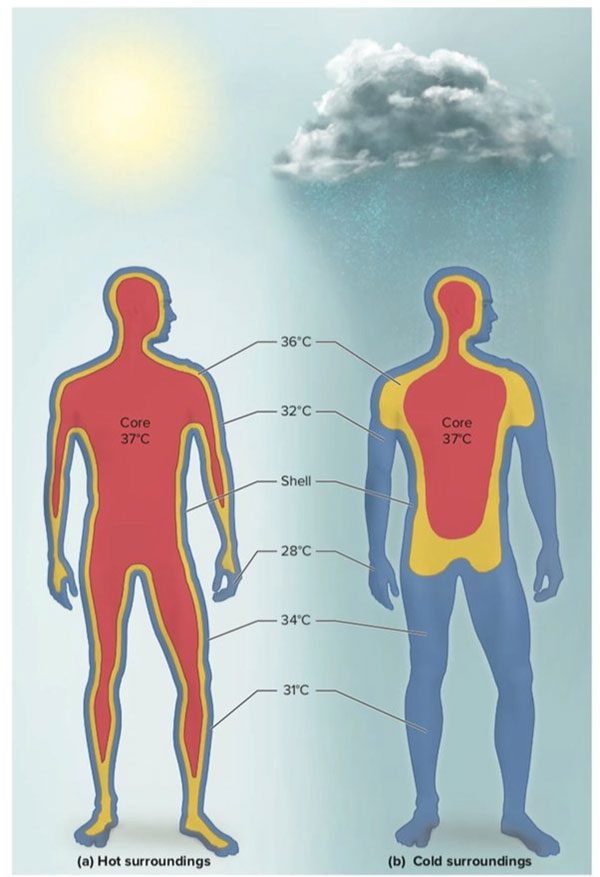
You can actively cope with this extreme weather in many ways. (Photo: Quora).
While it is impossible to fight against sudden weather changes, you can actively cope with this extreme weather in various ways.
First, always pay attention to keeping your body warm. Wearing lightweight but layered clothing is a suitable choice on days with sudden weather changes, as you can easily take off or add layers based on your comfort.
Being mindful of maintaining your body temperature at night will also help prevent strokes. Older adults should be encouraged to wear socks to bed on cold days, limiting outdoor bathroom trips to avoid exposure to cold air, especially during nighttime when the cold front arrives.
Staying hydrated, getting enough sleep, and maintaining a healthy diet are essential measures to keep your immune system robust during “yo-yo weather.” Additionally, practicing virus prevention measures such as wearing masks in public, frequent handwashing, and avoiding touching your face will help you avoid catching a cold.
For those experiencing a runny nose due to the weather, over-the-counter antihistamines and nasal sprays can save you a trip to the doctor. If you are prone to headaches due to weather changes and have prescribed medication, be sure to adhere to your treatment during these “yo-yo weather” days.
If this is your first time experiencing a headache from weather changes, try taking acute headache medication early, right after symptoms start. If symptoms persist, you may need to see a doctor to discuss your condition. Once again, don’t forget to wear enough warm clothing when going outside on these days.








































